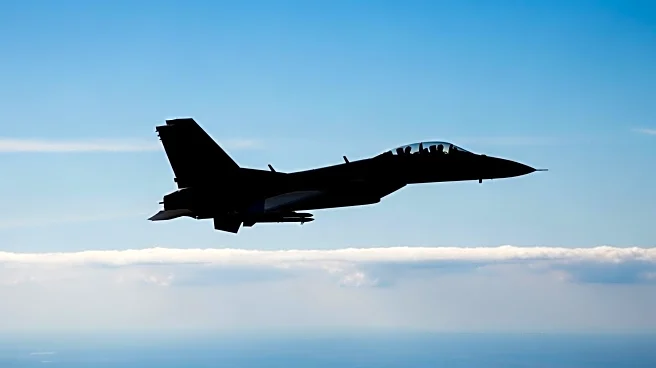What is the story about?
What's Happening?
Estonia has requested formal consultations under NATO's Article 4 after accusing Russian fighter jets of entering its airspace without authorization. The incident, which lasted 12 minutes, is seen as a test of NATO's ability to respond to airborne threats from Russia. Estonia's request follows a similar invocation by Poland after Russian drones entered Polish airspace. Article 4 allows NATO members to consult on threats to territorial integrity, political independence, or security, but does not automatically lead to military action.
Why It's Important?
The invocation of Article 4 by Estonia highlights ongoing tensions between NATO and Russia, particularly on NATO's eastern flank. It underscores the importance of NATO's collective security measures and the need for coordination among member states in response to perceived threats. The situation could lead to increased military presence and defense measures in Eastern Europe, affecting regional stability and international relations. The frequent use of Article 4 in recent years reflects growing concerns about Russian aggression and the need for NATO to address security challenges collectively.
What's Next?
NATO's North Atlantic Council will meet to discuss Estonia's request, potentially leading to joint decisions or actions to address the security threat. The consultations may result in increased military presence or defense measures in Eastern Europe. The situation could prompt further invocations of Article 4 by other member states if tensions with Russia continue to escalate.
















